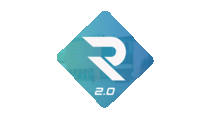Ethical Framework for Artificial Intelligence and Urban Sustainability
DOI:
https://doi.org/10.34306/bfront.v4i2.689Keywords:
Ethical Framework Artificial Technology Urban SustainabilityAbstract
The integration of artificial intelligence (AI) into urban environments addresses sustainability challenges like resource management, transportation efficiency, and waste reduction. However, critical need for a robust ethical framework to ensure equitable and environmentally responsible implementation. The method proposed emphasizes a combination of community involvement, fairness, and resilience, integrating ethical principles with practical strategies to maximize societal benefits, and incorporates the use of SmartPLS for structural equation modeling to analyze the relationships between ethical principles, sustainability dimensions, and urban outcomes. A significant GAP exists in current frameworks, which often focus solely on individual-level ethics and fail to address the dynamic, systemic challenges posed by fragile social systems and the uneven global structure. The novelty of this approach lies in its comprehensive vision that interlinks human-centered and collectivist-oriented development, bridging socio economic, environmental, and technological dimensions of sustainability. The proposed ethical framework not only mitigates risks but also fosters inclusive and resilient urban ecosystems, aligning digital innovations with the complex interconnections of the Sustainable Development Goals (SDGs) 11 (on sustainable cities).
Downloads
Published
How to Cite
Issue
Section
License
Copyright (c) 2025 Tatik Mariyanti, Indra Wijaya, Eamon Fletcher, Chandra Lukita, Sandy Setiawan

This work is licensed under a Creative Commons Attribution-ShareAlike 4.0 International License.














 This work is licensed under a
This work is licensed under a 